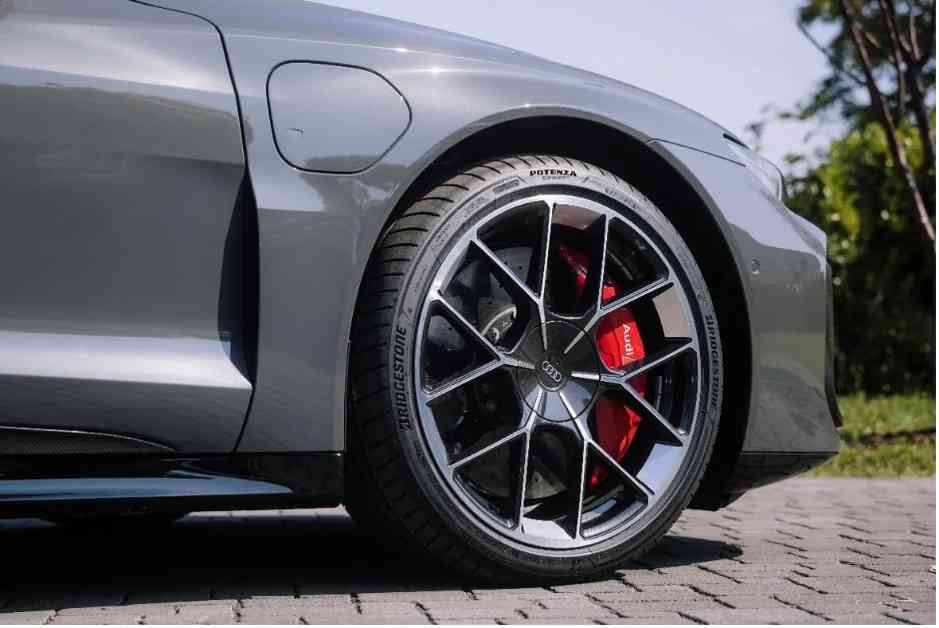Bridgestone has introduced a new eco-friendly tire made from 55% recycled and renewable materials, designed specifically for the Audi E-Tron GT electric vehicle. This tire, a variation of the Bridgestone Potenza Sport summer performance tire, has received an International Sustainability and Carbon Certification (ISCC) for its sustainable material content.
According to Bridgestone, the tire is composed of 35% renewable materials, such as natural rubber and bio-attributed polymers, and 20% recycled materials, including ground rubber, carbon black from used tires, rice husks, and ash silica. To further reduce its environmental impact, the tire will be produced at a plant in Rome powered by renewable energy.
Bridgestone has set a goal to achieve carbon neutrality and use 100% sustainable materials in all its tires by 2050. While the company has previously experimented with natural rubber from guayule plants in small batches of IndyCar race tires, this new tire for the E-Tron GT represents its first large-scale effort towards sustainability in mass-produced tires for consumer vehicles.
As electric vehicles have no tailpipe emissions, the manufacturing process of tires and other vehicle components plays a significant role in their overall carbon footprint. This has prompted other tire manufacturers and automakers, such as Michelin and Hyundai, to explore ways to create more environmentally friendly tires for EVs.
In a similar vein, Goodyear unveiled a prototype tire in 2022 made from 70% sustainable materials, although it was not yet available for commercial purchase. The following year, the company introduced eco-friendly tires for the Tesla Model 3 that utilized carbon black without the need for fossil fuel combustion during production.
The shift towards eco-friendly tires not only benefits the environment but also aligns with the growing demand for sustainable products among consumers. By prioritizing the use of recycled and renewable materials in tire manufacturing, companies like Bridgestone and Goodyear are paving the way for a more sustainable future in the automotive industry.









